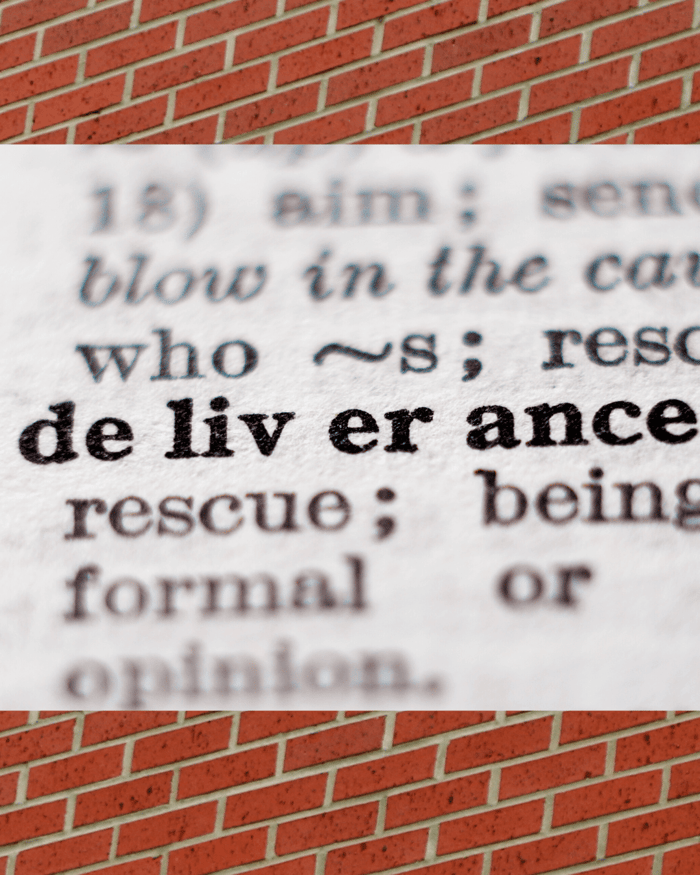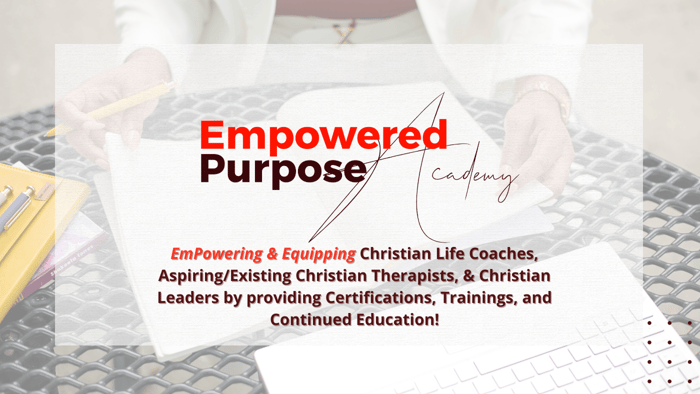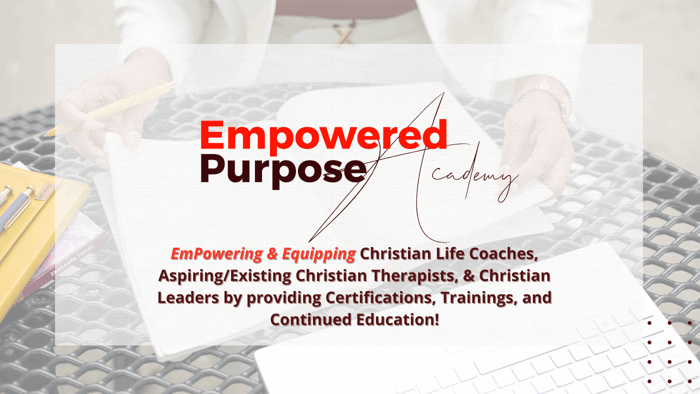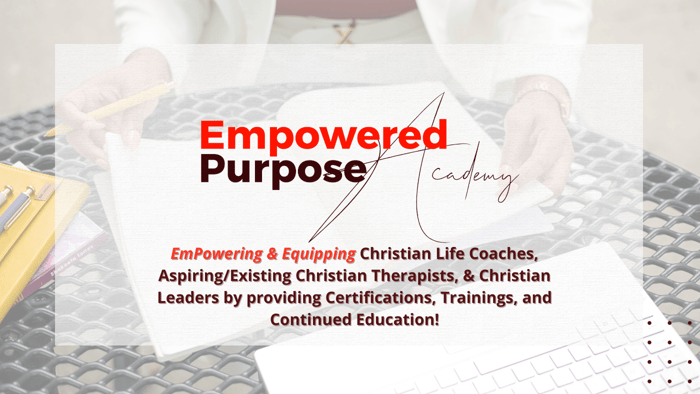Table of Contents
- Called to Healing and Deliverance: Turning Your Calling into a Coaching Practice
- 1. Know Who You’re Called to Heal and Deliver
- 2. Ask: Am I Healed and Delivered Enough to Lead Others?
- 3. Define What Healing and Deliverance Look Like in Coaching
- 4. Create a Framework (Not Just a Feeling)
- 5. Learn How to Communicate It Clearly to Clients
- 6. Market It with Clarity and Confidence
- 7. Train, Get Mentored, and Keep Growing
- Final Thoughts
- FAQs
Called to Healing and Deliverance: Turning Your Calling into a Coaching Practice
Called to Healing and Deliverance: Turning Your Calling into a Coaching Practice
 Many aspiring Christian life coaches feel a deep pull toward the ministry of healing and deliverance. It’s a beautiful and powerful calling—one that brings freedom, renewal, and restoration to the lives of others. But as a coach, it’s not enough to know that you’re called to healing and deliverance. You must also know who you are called to serve, how you’re equipped to walk with them, and your unique coaching process.
Many aspiring Christian life coaches feel a deep pull toward the ministry of healing and deliverance. It’s a beautiful and powerful calling—one that brings freedom, renewal, and restoration to the lives of others. But as a coach, it’s not enough to know that you’re called to healing and deliverance. You must also know who you are called to serve, how you’re equipped to walk with them, and your unique coaching process.
If you’ve ever said, “I know I’m called to healing and deliverance,” this blog is for you. Let’s explore what it means to operate in this space as a Christian life coach—and how to do so with clarity, integrity, and purpose.
1. Know Who You’re Called to Heal and Deliver
A calling to healing and deliverance is often birthed through your own testimony—what you’ve walked through, survived, and overcome by the grace of God. But the next step is clarity.
Who specifically are you called to serve?
Could you let me know if you're called to help?
Christian women heal from trauma or abuse?
Men break free from generational strongholds?
Pastors and leaders walk through burnout and spiritual warfare?
Individuals struggling with shame, identity, or emotional wounds?
Many coaches stop at “I’m called to help people heal.” However, healing looks different for different people, and so does deliverance.
When you niche down (yes, even in healing and deliverance), you move from general ministry to targeted transformation. The more specific you are, the more powerfully your message will resonate.
2. Ask: Am I Healed and Delivered Enough to Lead Others?
This is a tough—but—necessary question.
You don’t have to be perfect to coach others. None of us are. But it’s important to ask:
Have I walked through enough of my healing journey to guide someone else with wisdom and empathy?
Am I still bleeding from wounds I’m trying to bandage for others?
Have I allowed the Holy Spirit to do deep inner work in me before trying to do that work for someone else?
Coaching is not therapy, but it is deeply personal. If you are triggered by the things your clients bring up, or you find yourself spiritually drained after every session, it may be a sign to pause and heal further before stepping into this lane.
And if your coaching business is built on a testimony that still feels raw, God may be inviting you to go deeper in your own process before leading others.
“Physician, heal yourself!” – Luke 4:23
3. Define What Healing and Deliverance Look Like in Coaching
Healing and deliverance ministry in the church can look different than coaching. So, if you are using these terms in your Christian life coaching practice, clearly define them.
Questions to consider:
What does healing mean in the context of coaching? Is it emotional, spiritual, relational, or all three?
What does deliverance mean to you, and how will that play out in a session?
Are you incorporating inner healing, forgiveness work, mindset shifts, prayer, or journaling?
Some coaches use faith-based therapeutic techniques. Others use prophetic insight or Holy Spirit-led strategies. Whatever your approach, could you define it and explain it clearly?
That way, your potential clients understand what to expect—and your coaching practice remains ethical, structured, and effective.
4. Create a Framework (Not Just a Feeling)
You might feel passionate about healing and deliverance, but your clients are looking for process and results.
Think about the journey you’ll take them on:
Where are they starting? (e.g., broken, stuck, angry, ashamed)
What’s the process? (e.g., 6-week healing sessions, forgiveness work, prayer assignments, coaching assessments)
Where will they end up? (e.g., emotionally free, restored identity, aligned with their purpose)
This is your signature framework—a powerful tool that communicates structure, transformation, and value.
You don’t have to overcomplicate it. Just outline the major milestones your clients will hit when working with you. This also helps you market your program more effectively (more on that below).
5. Learn How to Communicate It Clearly to Clients
Let’s be honest: “healing and deliverance” are heavy terms and can mean different things to different people.
So, when you market your services, you need to use transformational language rather than spiritual terminology.
Here are some examples:
Instead of saying, “I help with inner healing,” say:
“I help Christian women overcome emotional wounds from childhood and build a healthy, God-centered identity.”
Instead of saying, “I do deliverance coaching,” say:
“I guide believers in breaking free from fear, shame, and strongholds that keep them from walking in purpose.”
When people know what the result is, they’re more likely to invest in the process.
6. Market It with Clarity and Confidence
You can have a powerful calling and still struggle to attract clients, especially if your message is unclear or intimidating.
To market your coaching in the area of healing and deliverance:
Create a strong brand message: Speak to the transformation, not just the process.
Use testimonials and personal stories: Share how your life has changed and how your clients are seeing results.
Offer workshops or masterclasses: Introduce people to your approach in a low-pressure setting.
Post content that educates and empowers: Help your audience understand what healing and deliverance coaching is, and how it can change their lives.
Also, remember that you can do all of this while still honoring your faith and the power of the Holy Spirit. You don’t have to water down your calling—you just have to communicate it wisely.
7. Train, Get Mentored, and Keep Growing
Coaching in healing and deliverance requires ongoing maturity, discernment, and growth.
Whether you’re offering prayer-led sessions, emotional restoration, or mindset coaching, it’s essential to be trained and mentored by others who have walked this path.
That’s why, in our Christian Life Coach Certification Program at EmPowered Purpose Academy, we don’t just teach the what of coaching—we help you uncover the who, how, and why behind your calling.
We’ll walk with you through:
Discovering your niche
Building your coaching framework
Practicing ethical, Spirit-led coaching methods
Marketing your message with clarity
Growing a coaching business that honors God and changes lives
Final Thoughts
You were not just called to healing and deliverance but also to lead. However, leading others into healing requires clarity, structure, and spiritual maturity.
Before you launch your coaching business in this space, take the time to answer these foundational questions:
Who am I called to serve?
Am I healed enough to lead others?
What does my coaching process actually look like?
Once you can answer those confidently, you’ll be ready to serve your clients with excellence and fully fulfill the calling God has placed on your life.
Our certification opens once a year, and you can join the waitlist HERE!
FAQs
1. Can I coach in healing and deliverance if I’m still on my own healing journey?
Yes, but with caution and discernment. You don’t have to be 100% healed to coach others, but you should be far enough along in your process that your wounds don’t become triggers in sessions. Coaching from a place of stability and maturity ensures you’re guiding, not bleeding, into your clients’ journeys.
2. What’s the difference between deliverance ministry and coaching?
Deliverance ministry often involves direct prayer, spiritual warfare, and pastoral oversight, typically in a church or ministry setting. Healing and deliverance coaching focuses on helping clients recognize patterns, break strongholds through biblical principles, and grow in spiritual maturity. It’s guided by the Holy Spirit but rooted in a structured, ethical coaching relationship, not formal ministry.
3. How do I explain “healing and deliverance coaching” to potential clients without overwhelming them?
Use clear, transformation-based language. Instead of saying “I do deliverance,” try:
“I help Christian women break free from emotional strongholds and walk in spiritual freedom.”
Lead with outcomes like freedom, clarity, healing, and identity so potential clients can see how your coaching helps solve their struggles.
4. What qualifications or training should I have to coach in this area?
While healing and deliverance often come from personal experience and spiritual discernment, pursuing formal training is wise. Our Christian Life Coach Certification Program equips you with biblical coaching principles, ethical practices, and a framework for guiding clients through healing in a safe, Spirit-led way.
5. How do I charge for healing and deliverance coaching without feeling guilty?
Remember, coaching is not the same as ministry. It is a service that requires time, preparation, prayer, and expertise. Scripture says, “The laborer is worthy of his wages” (Luke 10:7). You can honor God and help people heal while still valuing your time and offering. Being paid for your coaching allows you to continue showing up, fully present and prepared to serve others well.







